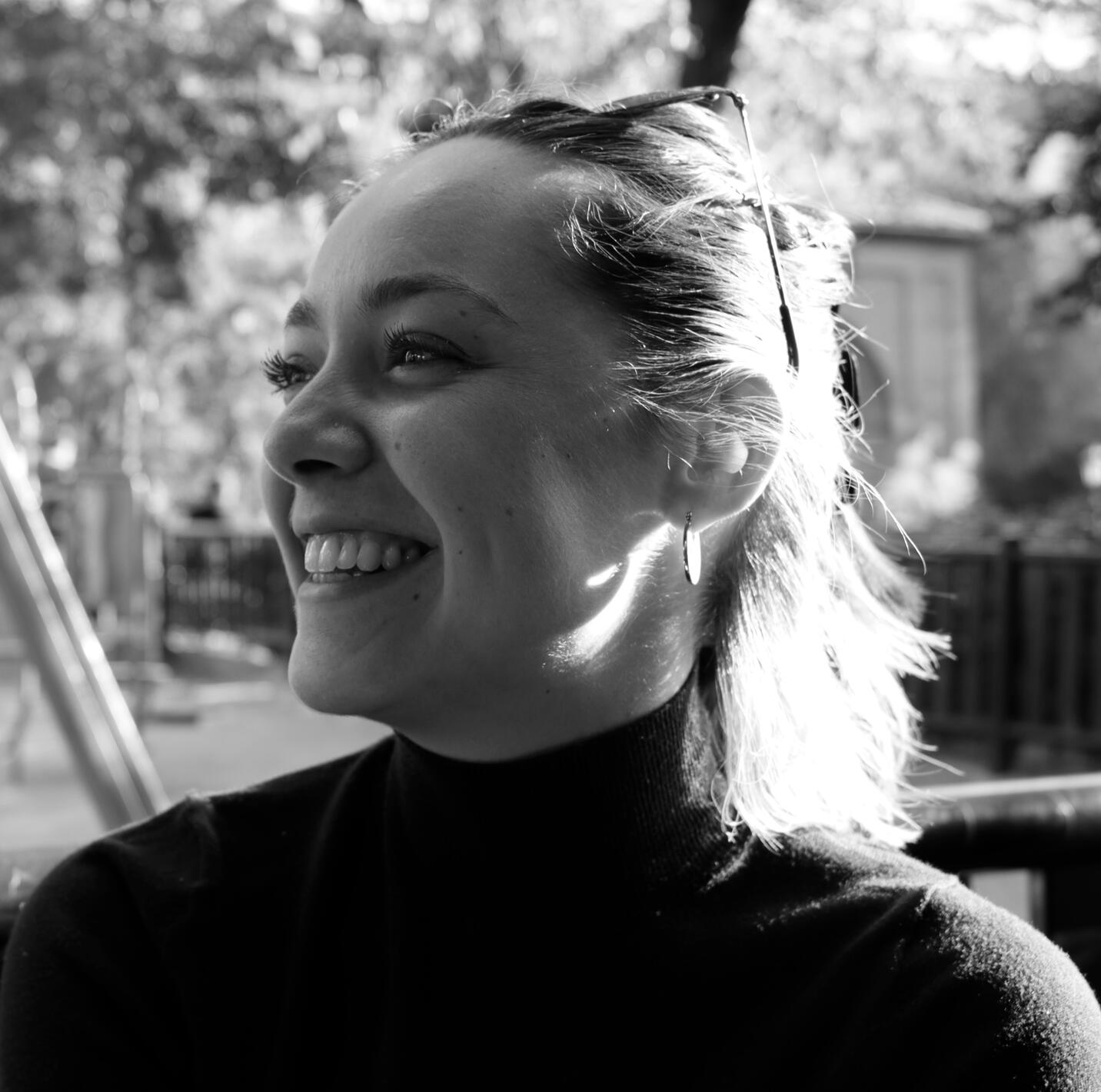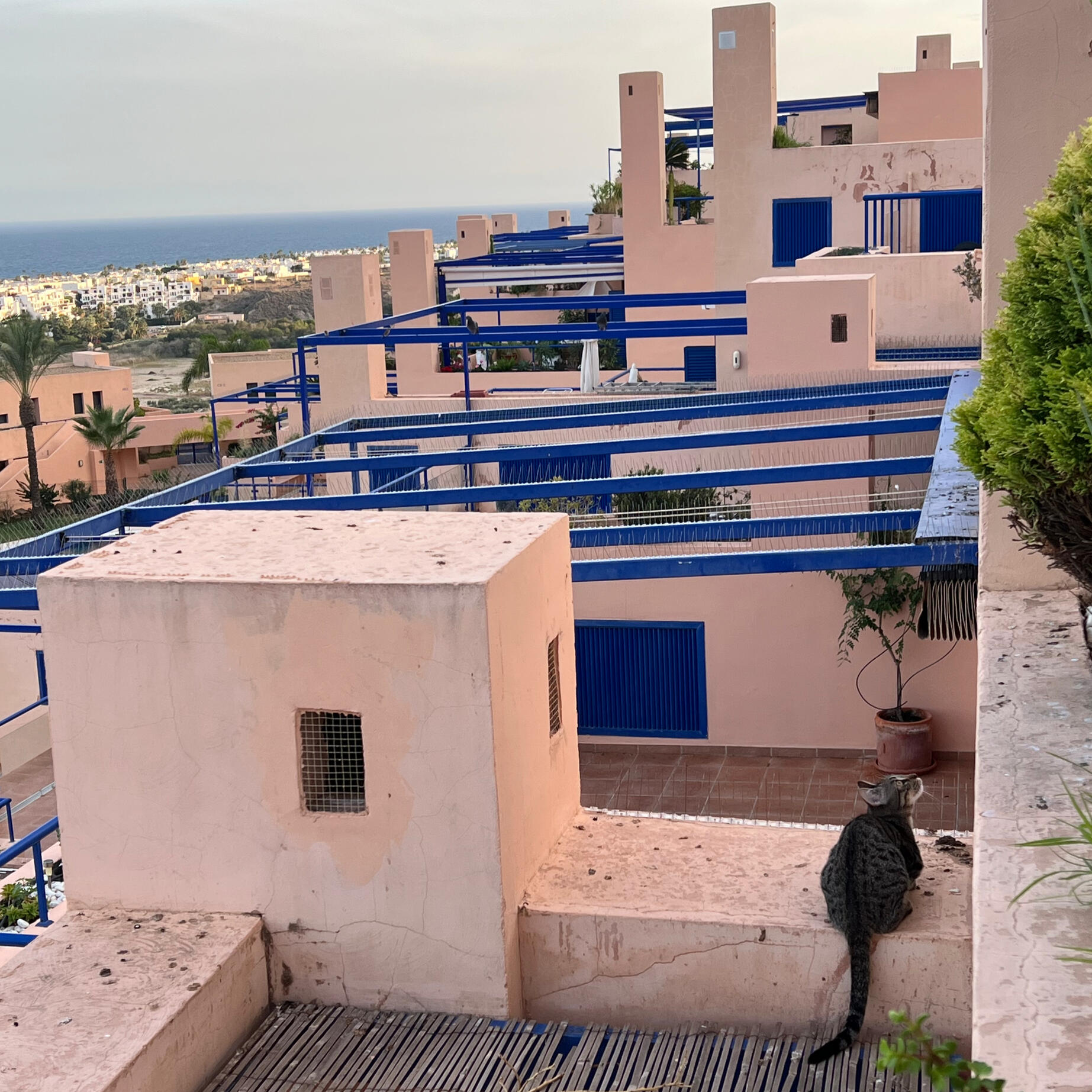Heyya!
I'm Carla
I create high opt-in newsletters for travel brands & help them convert onlookers into loyal readers and customers.
Urbanist-cum-ghostwriter based in Madrid. City mouse. Life-long nomad.Previously in Orléans, Minneapolis, Paris, Brussels, London, Brighton, Munich, Copenhagen, Vienna.

Why you need a newsletter
Every business needs a newsletter to:
Capture visitors on website + socials
Build a relationship + trust with potential clients
Grow your business on auto-pilot with automated content
A successful newsletter has three elements:
Creative Lead Magnet
Someone needs a strong incentive to share their email, meaning you need to offer something truly valuable. A discount or vague "news and updates" isn't enough. An Educational Email Course (EEC) is a powerful digital asset you can promoted across all platforms, designed to attract the right people and grow your list with purpose.
Free Value
Holding back information doesn't work anymore. People can find answers anywhere, but they'll choose your business if you offer clear, helpful solutions upfront. Giving value freely builds trust. Then, they might try to solve the problem on their own (or not solve it). But if they’re reading your content, chances are they'll want your help to do it right.
Build Once, Run Forever
Email lists grow slowly, but they're worth it. 4 times more sales are made as a result of email than social. With an automated lead magnet like an EEC, you'll collect emails and nurture leads on autopilot, turning curious onlookers into conversations and clients over time.
What's an Educational Email Course?
An Educational Email Course (EEC) is short, 5-day email sequence that nurtures your subscribers, builds trust, and converts them into clients/customers/followers for your business or organisation.Check out my free EEC to see one in action: Design Your First Place
Is a newsletter really for me?
An EEC is for you if:
You need a way to connect, educate and convert your audience.
Your newsletter is not growing and takes too much of your time or money.
You are a business with a product or service to sell.
An EEC is not for you if:
You have a newsletter growing at a rate you can't keep up with.
You think email is so 2004 ;)
You don't want more clients for your business, or you don't have a business.
About me
Heyya! I'm Carla. I'm a life-long nomad, having lived in over 10 countries spanning 3 continents starting when I was 1 year old. The average time I've spent in one place is about 2 years. And moving is always in the back of my mind.This lifestyle began with my family and continues today. It’s also what brought me into the travel industry. After spending most of my life in places where I didn’t speak the language, finding work, adapting, and navigating new people and places, I’ve learned a lot about what meaningful travel really means.I work with sustainable travel businesses because social, environmental, and economic sustainability isn’t optional — it’s the only way we can maintain our quality of life and that of others. Once you discover this world, you want everyone to experience it.So why ghostwriting? I love helping purpose-driven businesses go the extra mile by educating, connecting, and growing through stories and writing. I still write for myself too, nowadays more in the form of morning pages.If you're in Madrid, you might spot me running along the Manzanares, drinking a vermut in La Latina, or watching the sunset from Tío Pío.

June 2024
Lost in Translation: Funny Language Fails While Living Abroad
Funny language fails after years of living abroad when I didn’t speak the local language. From “calling dibs” to climbing “sin ropa”, here’s a collection of my best (or worst) language mishaps as an expat.
Lost in Translation: Funny Language Fails While Living Abroad
June 2024
Funny language fails after years of living abroad when I didn’t speak the local language.
From “calling dibs” to climbing “sin ropa”, here’s a collection of my best (or worst) language mishaps as an expat.
Diving Into a New Language
I’m basically a serial expat. Most of my life has been spent abroad, to the point that I don’t consider France my home country anymore. Moving around every one, two, three or five years, has been a constant in my life. I love this, but it means that I have spent a long time in countries where I was not fluent in the local language.There is no doubt that this lifestyle has been a privilege, but it has also put my in funny situations. If you want to learn a language by immersion - that is, by being thrown into the environment - you have to start speaking as early as possible. The only catch is accepting your mistakes and sounding silly using basic words and one verb tense.I’m not the best at it. I don’t like to sound dumb even when I know that’s where we all start. The worst for me is when I realise the mistakes as I make them.But this is also the funniest part of the journey to fluency, because it leads to mistakes that I notice and remember. Here I am to share them with you in the hope that it encourages people to go out and speak fearlessly in languages you don’t (yet!) master.
First Language Fails: Lessons in English
The first experience of learning a language by immersion was in Minnesota. On my first day of fourth grade at Creek Valley Elementary School, three days after my ninth birthday, I didn’t speak more than five words of English. “Hello”, “thank you”, “the”, “is”, and “we did it”, which I had learned from Dora the Explorer and thought was pronounced as one single word “weedeedeet”.I couldn’t even introduce myself, but kids learn fast. After a few months, I picked up phrases and gained confidence. I could keep up with simple conversations. Some of the hard words were “Wednesday”, “schedule” and “jewellery”, but at the end of the school year I was comfortable in my everyday life and kept up with my friends (kind of). Then came the harder part of learning a new language.Once you’ve mastered the basics, you graduate to learning the random sentences that make no sense and being bold enough to try out new words you’re not sure will work.I found out that “calling dibs” didn’t mean picking up the phone to talk to someone, but it did mean I might get my friend’s cookie. Or, that shouting “attention!” didn’t mean “watch out!” like in French, but it will get your class to stop whatever they’re doing and look at you funny.Some of these mistakes took me years to understand. Others, I’m still not sure I got right. When I got to middle school, there was talk about homecoming. What is “home coming”? Who’s coming home?
I’m Not Safe In My Own Language
Back in Europe, I thought the years of language mishaps were behind me. I was first living in Brussels, which is French speaking. But the misunderstandings and funny interactions continued, even in my first language.After five formative years of living abroad, I had adopted a slight American accent in French which made my new friends laugh. To their amusement, I made up words that didn’t exist. “Compléxion”, apparently, is not a word, and if it were, the meaning would be “something you are self conscious about”. Telling my friend she had a beautiful “compléxion” got me a weird look.Then, I moved to London. I thought I was back in comfortable English territory, but this place was full of funny, creative words and expressions I didn’t know. Did I want a “cuppa”? Was I “alright, luv?”. My first month at university, I wanted to try out a new expression. I said that my friend was “taking a piss” when I really meant, “taking the piss”. Subtle, yes. Hilarious? Also.
Language Misadventures Continue in Europe
Years later, I was living in Germany. I knew Germans loved sparkling water and that I did not, so I made sure to check labels carefully. During my third month in Munich, I asked an older man in broken German which bottle in was not sparkling. He misunderstood and thought I wanted to know how the vending machine worked, and showed me how to insert coins. It was sweet, but it turned out that there was no still water: only sparkling and lightly sparkling. Very Munich.Madrid was different because I learned Spanish at school and the language is fairly close to French. This meant I could understand much more out of the box. But no amount of school classes prepare you for natural conversations with natives. You have to throw yourself into it, sin miedo.Many funny moments come to mind. For one, I thought my entire life that “tengo retraso” meant “I am late”, but it actually means “I’m retarded”.Then recently, a friend was talking about the “NBA” (the basketball league) and I understood “nevera” (a fridge). I spent the conversation wondering what playing basketball in a home appliance could translate to. A few days later, I thought we were having a discussion about Franco’s love of yoghurt. I’m not sure how I got to this one, but I checked and there is no record of the dictator having been fond of yoghurts.As I grew more confident, these misunderstandings turned into outright hilarious moments. Last July, I was explaining to a new acquaintance that I like bouldering and referred to it as climbing “sin ropa”. It turns out this doesn’t mean without ropes, but without clothes. I never saw that guy again.
Lessons From 20 Years Of Language Fails
It’s wonderful to be part of conversations with native speakers. They assume you understand everything, and you almost do. You’ll get to hear things you wouldn’t otherwise, whether it’s a new expression, an inside joke, about cultural events, political drama, pop culture, sports… Eventually, you’ll get it all and feel proud that you have another language under your belt.I laughed a lot reflecting on the language mistakes I made over the years of living as an expat for the last two decades, and it made me proud to see how far I’ve come. Learning a new language takes courage and humility. If you take yourself too seriously, you’ll never learn.If you have any funny stories of your own, please share - it will make me feel less alone.